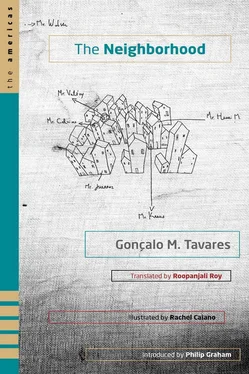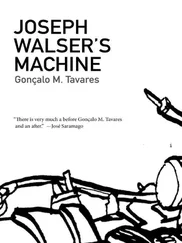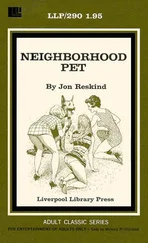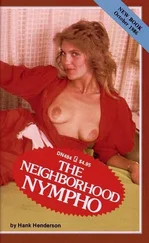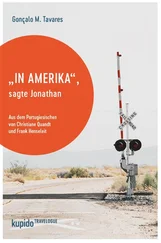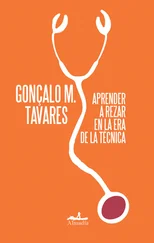“Who switched off the damn lights?!” yelled Mister Juarroz irritatedly.
The Absence of Physical Proof

Since it was quite inelegant not to see anything when there was so much to see, Mister Juarroz stayed at home, glued to the window, watching the world go by.
Since it was possible to hear the silence within the house, Mister Juarroz would open the window to let some noise in for, at heart, he hated silence.
Since hands are, above all, machines to touch things, when Mister Juarroz was at home in front of the open window, he liked to place his left hand against the glass.
Since one of the most endearing characteristics of human beings is their capacity to smell and taste, when Mister Juarroz was at home with the window open to see and hear, with his left hand against the glass in order to touch, he also liked to drink a hot cup of coffee.
Since he liked to think, when Mister Juarroz was at home with the window open, and his left hand against the glass, drinking hot coffee, he would lose himself in his thoughts and, thus, when his wife would ask him what he had seen and heard from the window, Mister Juarroz never knew what to say because he could never remember anything. And only an empty cup of coffee proved something: that he had indeed drunk some coffee.
Mister Juarroz often thought that the world would be more physical if things that were seen or heard would also eventually leave an empty coffee cup, so as to prove to his wife that he was not wasting time, as she accused him of doing. However, even after his bouts of thinking, nothing changed. Since thoughts, too, do not have any proof. Just the coffee, just the coffee — he would murmur.
Shadows

“Of course shadows aren’t good for hiding shapes,” thought Mister Juarroz, “but they are excellent for hiding colors. But if you hid a white square in a shadow, everyone would make fun of you.”
However, just like a diver diving in water, inside a shadow anything that is black and flat disappears.
“For example,” thought Mister Juarroz, “a shadow is an excellent place to hide a black square. The only problem is that it is an ephemeral hiding place.”
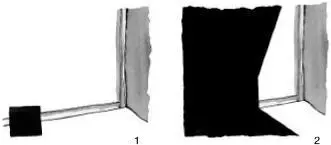
“But there is no hiding place that is not. All hiding places depend on the sun,” Mister Juarroz murmured enigmatically.
Shadows and Hiding Places

It’s obvious that Mister Juarroz was aware that hiding behind a piece of furniture was not the same as hiding behind a shadow. The problem with the latter was that it lacked volume.
Nevertheless, Mister Juarroz could not help thinking that one could hide better behind the shadow of a high tower than behind the shadow of a lamp. “We’re not covered,” thought Mister Juarroz, “but we are farther away. And being farther away is another way of hiding.”
“However, it’s far more tiring,” Mister Juarroz would say.
Solving Practical Problems

Mister Juarroz was thinking that the world was completely out of sync, since on the one hand there were floods and on the other people were thirsty, when he finally began to pay attention to the sound of a dripping tap.
Mister Juarroz then spent long minutes observing the drops falling from the tap.
Mister Juarroz then once again began to think that the world was out of sync because there, in his house, there was a tap dripping while that was not the case in other houses.
He then tried to recall which tool was used to tighten the tap and in fact there it was, undoubtedly having been left there by his wife, so that he could do the needful.
The problem was that Mister Juarroz, even after staring at that instrument for ages, could not manage to remember what it was called.
“I don’t touch things whose name I don’t know,” Mister Juarroz murmured to himself, as though he had just established yet another commandment.
He then decided to eliminate the persistent ping-ping of the tap via his thoughts, since he would never manage to do so via his actions.
He began to think of a piece by Mozart, taking great care to ensure that the volume was higher than the volume of reality.
It worked.

The Library

Mister Juarroz liked to organize his library according to a secret method. Nobody likes to reveal closely guarded secrets.
Mister Juarroz first organized his library in alphabetical order according to the titles of each book. However, this method was quickly discovered.
Mister Juarroz then organized his library in alphabetical order, but according to the first word of each book.
It was more difficult, but after a while, somebody said, “I know how it was done!”
Mister Juarroz then reorganized his library, but this time in alphabetical order according to the thousandth word of each book.
There are very persistent people in this world, and one of them, after a lot of investigation, said, “I know how it was done!”
The following day, assuming this round to be the decisive game, Mister Juarroz decided to organize his library according to a complex mathematical progression that involved the alphabetical order of a given word and Gödel’s theorem.
Thus, to the amazement of many people, Mister Juarroz’s library began to be visited not by bibliophiles, but instead by mathematicians. Some of them spent entire evenings opening the books and reading certain words, using a computer for long calculations, thus trying at all costs to find the mathematical equation that would reveal the system behind the organization of Mister Juarroz’s library. Essentially, it was a task aimed at discovering the logic of a series, such as
2 | 9 | 30 | 93
Well, two, three, four months passed by like this, but D-Day arrived. A reputed mathematician, completely red and euphoric, tightly clutching a gigantic pad covered with numerals in his right hand, said, “I know how it was done!” and then presented the formula upon which the organization of the library was based.
Mister Juarroz was disheartened and decided to give up the game.
The next day he asked his wife to organize the library in any way that she liked.
And that’s how it happened. Nobody was ever able to discover the logic behind the organization of Mister Juarroz’s library.
Two Chairs

Mister Juarroz was ruminating that between one thing and another in this world there was always a space.
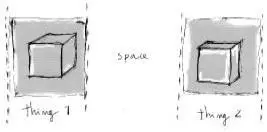
But it was also possible that a single thing could exist
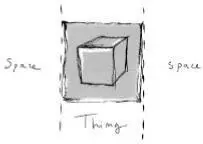
And if this was the case then the spaces became the main thing and the concrete object, endowed with volume and space, became the space (the interruption).
Читать дальше
